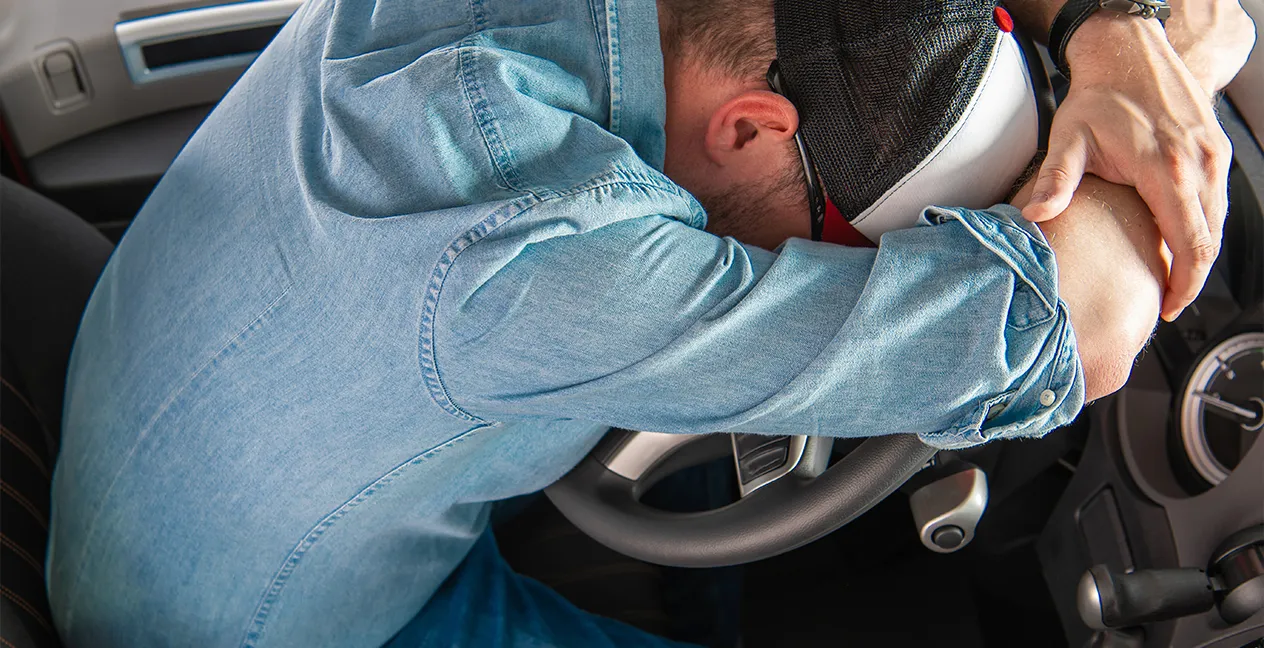
Created by Ana Faustino at Wednesday, 22 June 2022
How to react in cases of tiredness and stress
Stress and tiredness are responsible for many less pleasant situations, which can often be prevented.
Tiredness can have various causes, all of which are closely related to drivers' lives, such as insufficient sleep or the activities carried out throughout the day. When a driver is fatigued, their perceptual, cognitive and motor skills are affected and it affects the way they receive, interpret and react to important information in the road environment.
The risk of falling asleep while driving is quite high when the driver is fatigued and can also lead to other reactions, such as irritability, decreased concentration and increased reaction time to make important decisions. Some of the consequences can be difficulty in keeping the vehicle within the limits of the lane, frequent and inconsistent speed changes and late or inadequate reaction to dangerous situations.
.
To prevent tiredness, you should:
Avoid drinking alcohol because it contributes to drowsiness;
Avoid a long journey after a large meal;
Whenever possible, share the driving on long journeys, so that the same driver doesn't drive continuously for many hours;
Stay hydrated and get fresh air during the journey;
Try to get some stimulation while driving, such as talking to a passenger or listening to the radio;
Take a break, on long journeys, at least every two hours where the driver can preferably move around.
.
When it comes to stress, the risks can be just as dangerous. The individual's reaction to pressures or demands that go beyond the limits of their own abilities is often complex and depends on each person. Both the factors that bring about such a state of mind and the reaction it leads to can be extremely different.
The reaction to stress depends on the physiological and psychological state of each individual, as well as their motivations and personality. Being late for an important event can lead to really stressful situations while driving for some, while others don't get carried away by the same feelings.
As a general rule, a stressed driver becomes more aggressive in his driving. This can be manifested by sudden acceleration and braking, approaching the vehicle in front to pressure it to go faster, preventing other cars from entering or exiting a lane, excessive speed, inappropriate gestures or insults and dangerous maneuvers. All these manifestations can lead to very dangerous situations
.
To avoid stressful situations, you should:
Always allow enough time to make the journey and to ensure that you arrive at the desired location in good time;
Anticipate the possibility of heavy traffic on the roads you will be traveling on;
Know well, or obtain sufficient information about the route to be taken. Use GPS if necessary;
Keep calm when faced with dangerous maneuvers or aggressive drivers;
Anticipate traffic conflicts and keep your distance from the vehicle in front of you;
Listening to calm, relaxing music to avoid stress while driving can be very useful;
Prepare strategies and activities to occupy bored passengers or even children, which prevents the behavior of the people being transported from generating anxiety in the driver.
.
.
.
Source: imt-ip.pt
Translated with DeepL.com






